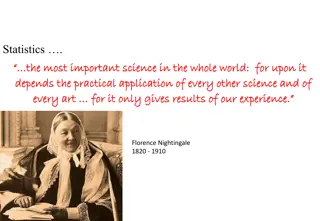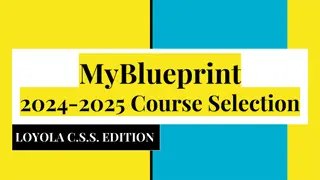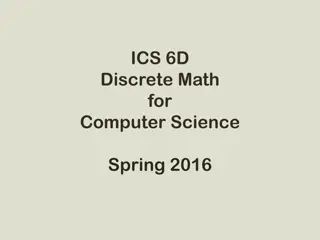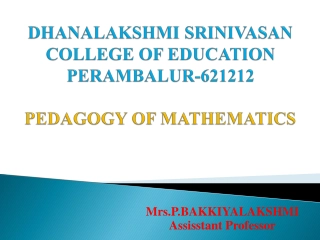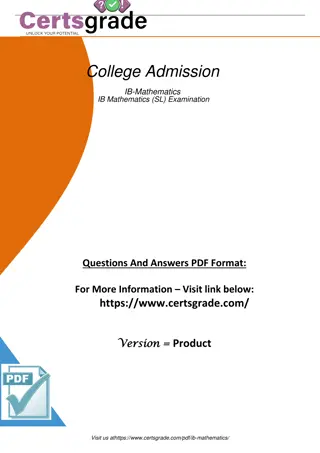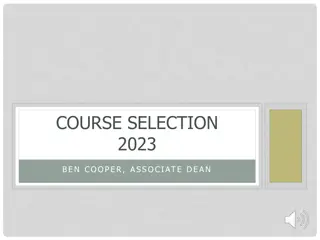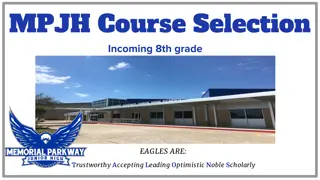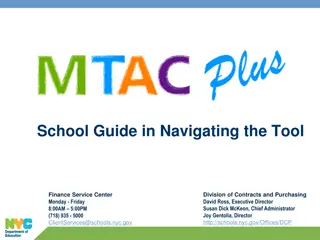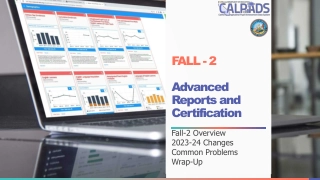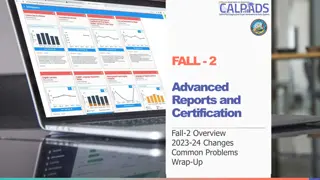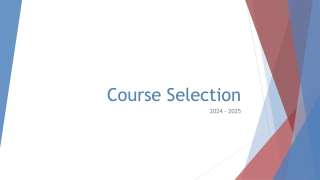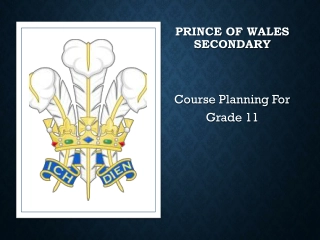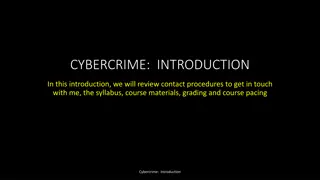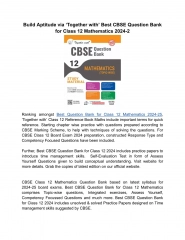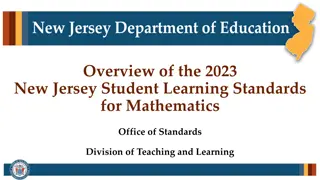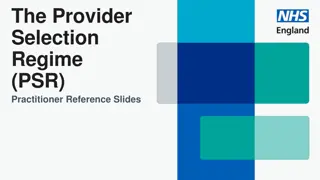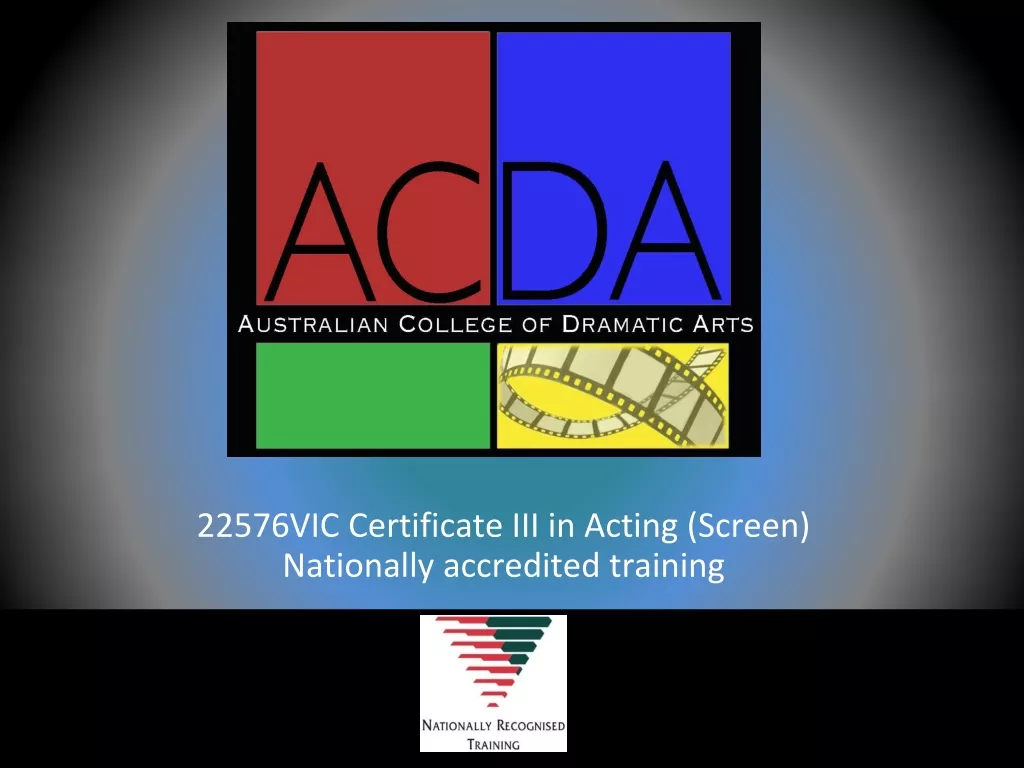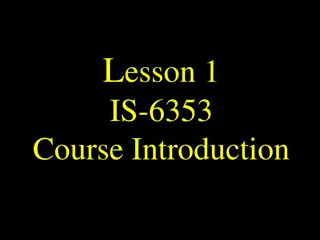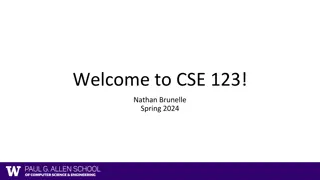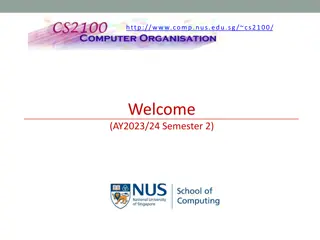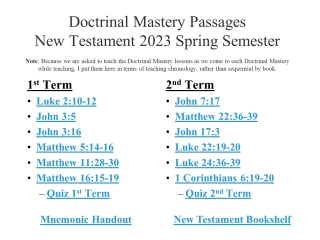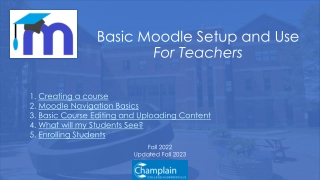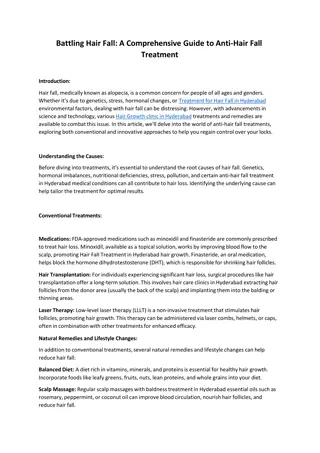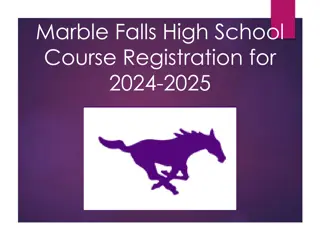Mathematics Course Selection Guide for Fall Semester
Academic advisors Olivia Biehle, Nathaniel Sulapas, and Jennifer McHam at the University of Texas provide guidance on selecting mathematics courses for the fall semester. The guide includes information on course sequences, considerations based on UTMA scores, AP credit recommendations, dual credit options, and factors to consider for students close to the cut-off score for calculus readiness. The guide emphasizes the importance of consulting with advisors and using the math readiness package for those opting to take calculus.
Mathematics Course Selection Guide for Fall Semester
PowerPoint presentation about 'Mathematics Course Selection Guide for Fall Semester'. This presentation describes the topic on Academic advisors Olivia Biehle, Nathaniel Sulapas, and Jennifer McHam at the University of Texas provide guidance on selecting mathematics courses for the fall semester. The guide includes information on course sequences, considerations based on UTMA scores, AP credit recommendations, dual credit options, and factors to consider for students close to the cut-off score for calculus readiness. The guide emphasizes the importance of consulting with advisors and using the math readiness package for those opting to take calculus.. Download this presentation absolutely free.
Presentation Transcript
Orientation Advising 2023 Mathematics Academic Advisors: Olivia Biehle olivia.biehle@austin.utexas.edu Nathaniel Sulapas nathaniel.sulapas@austin.utexas.edu Jennifer McHam jennifer.mcham@austin.utexas.edu
Fall Semester Courses Sample Schedule Will vary depending on assigned CNS Community Math course UGS 302 or 303 core requirement Science (ex: CH 301) or Technology course (ex: CS 303E) RHE 306 or other core course (ex: MUS 307) - (Actuarial students may want to take ECO 304K, a Social & Behavioral Science)
Mathematics Course Sequences Most Math degrees require M 408C & M 408D or M 408N (aka K) and M 408S (aka L); The BSA requires M 408C & M 408D or M 408N, M 408S, and M 408M (although M 408M can be waived); M 408M is an option for the BS: Option VII, Mathematics degree
Consider the Following Things When Choosing Fall Mathematics Course Your choice is based on: 1) Your UTMA score 70 or higher for M 408C or M 408N (78 recommended for M 408C) (55 or higher for M 305G Preparation for Calculus)
2) 2) AP Credit Score Credit Earned Fall Course Recommendation AB: 3 or 4 AB: 5 BC: 3 or 4 BC: 5 (M 408N and M 408S are the College of Natural Sciences versions of M 408K & M 408L) M 408N (K) M 408C M 408C M 408C or M 408N (K) & 408S (L) M 408N or M 408C or M 408S M 408D or M 408D-AP M 408C or M 408D or M 408D-AP M 408D or M 427L-AP 3) Dual Credit M 408N options 4) Confidence in your math skills M 408S M 408N & 408S Consult with Advisor for
Other Factors to Consider (If you are eligible for calculus but close to the cut-off score of 70): No high school calculus You took calculus, but not AP, in high school Your gut says you are not prepared for college calculus Preparation for Calculus (M 305G) is an option
If you decide to take calculus: Use the Math Readiness Package this summer Go to discussion sections in fall Make use of resources Sanger Learning Center CalcLab Professor's office hours
Advanced Math If you took math beyond the level of AP Calculus BC in high school, the Academic Advisor you meet with will refer you to the Math Faculty Advisor.
Science Courses BS in Math: 8 hours in one area selected from AST, BIO, CH, GEO, or PHY BSA: 6 hours in one area selected from AST, BIO, CH, GEO, MNS, or PHY and 3 hours from another area selected from AST, BIO, CH, CS, GEO, MNS, or PHY Important: must be majors-level courses Can overlap with the core science requirement CS 303E is required for a BS in Math and will count toward Science & Tech II CH and PHY are the best options for the 6-hour or 8-hour requirement
Science Credit & AP Scores AP Chemistry, 4-5 Chemistry CH 301, 302 & 204 Physics (algebra-based) PHY 302K & 105M AP Physics 1, 3-5 AP Physics 2, 3-5 Physics (algebra-based) PHY 302L & 105N AP Physics C-Mechanics, 3-5 Physics (calculus-based) - PHY 303K & 105M or PHY 301 & 101L AP Physics C-Elect. & Magnetism, 3-5 Physics (calculus-based) - PHY 303L & 105N or PHY 316 & 116L AP Biology, 3-4; AP Biology 5 Biology BIO 311C; BIO 311C & 311D
UGS 302 or 303: Signature Course Topic-based 302 - writing based, small 303 - larger, less writing Must take in first 2 semesters Have several back up topics in mind!
Core Courses & AP Credit https://ugs.utexas.edu/core/requirements/current (Talk to your Academic Advisor before claiming credit) RHE 306 Composition 1 AP Language, 3-5 or SAT Writing & Lang, 33+ AP Literature, 4-5 E 316L, M, N, or P - Literature AP US History, 3-5: HIS 315L US History, 6 hrs AP Government, 3-5: GOV 310L Government, 6 hrs AP PSY, ECO, GRG, 3-5 Social & Behavioral Science, 3 hrs AP Art History or Music Theory, 3-5 Visual & Performing Arts, 3 hrs
Course Flags Courses with content that fulfill core curriculum skills & competencies 6 Flag types: Writing need 2 total, 1 upper-division (one cannot overlap with a core course) Quantitative Reasoning built in Independent Inquiry can take a math course with this flag Global Cultures UGS 302/303, History courses, VAPAs, Literature, electives Cultural Diversity UGS 302/3, History courses, VAPAs, electives Ethics UGS 302/3, Government, Business minor courses, electives
CNS Cornerstones Communities Most common: FIG First-Year Interest Group Includes UGS 018 Seminar (not a study group) Course(s) taken by all members of a community Group of about 20-25 that meets weekly with an Advisor and a Student Mentor Get to know other people with similar interests Share 1 or more courses reserved seats Informal meeting with a professor, help with registration, study skills information, fun, etc. Free food
Other Courses That May Be Part Of Your Schedule FRI (Research Methods Course) UTeach (UTS 101) Special programs may require certain courses (Jefferson Scholars, University Leadership Network, Plan II, etc.) Elective
Possible Interest in Teaching? See Orientation Schedule for several UTeach info sessions and events Check out UTeach Palooza on Day 2, 2-3:30 PM on the Painter front lawn Visit uteach.utexas.edu for other UTeach information
Minors & Certificates Only required for BSA degrees Optional for other degrees Another option for a BSA degree is 15 hrs in a single subject (not in Engineering, Geosciences, CNS, Nursing, or Pharmacy) Transcripted minor or certificate: specific guidelines & classes Pursuing a minor or certificate does not guarantee access to all classes that can count https://cns.utexas.edu/students/degrees-majors-advising/transcripted-certificates https://cns.utexas.edu/students/degrees-majors-advising/transcripted-minors
Interactive Degree Audit Excellent way to see how courses count and what requirements you still have
Registration Before Registration Be thinking about which math course you want to take Have a 1-on-1 meeting with an Academic Advisor (Day 2) Advisor will provide information about reserved course(s) in your CNS community Choose 2-3 more courses (for many, UGS 302 or 303 should be one of these) Have back-up courses in mind Check your Registration Information Sheet (RIS) for bars Registration on Day 3 Academic Advisors will be available by email; phone or Zoom as needed Follow Advisor s instructions about adding reserved courses first
Registration can be stressful, but remember: We are here to help You will get what you need (not always exactly what you want) Things change, especially in August: Use waitlists when you can Make changes during add & drop periods in August & Sept. It's the beginning of your UT adventure!



